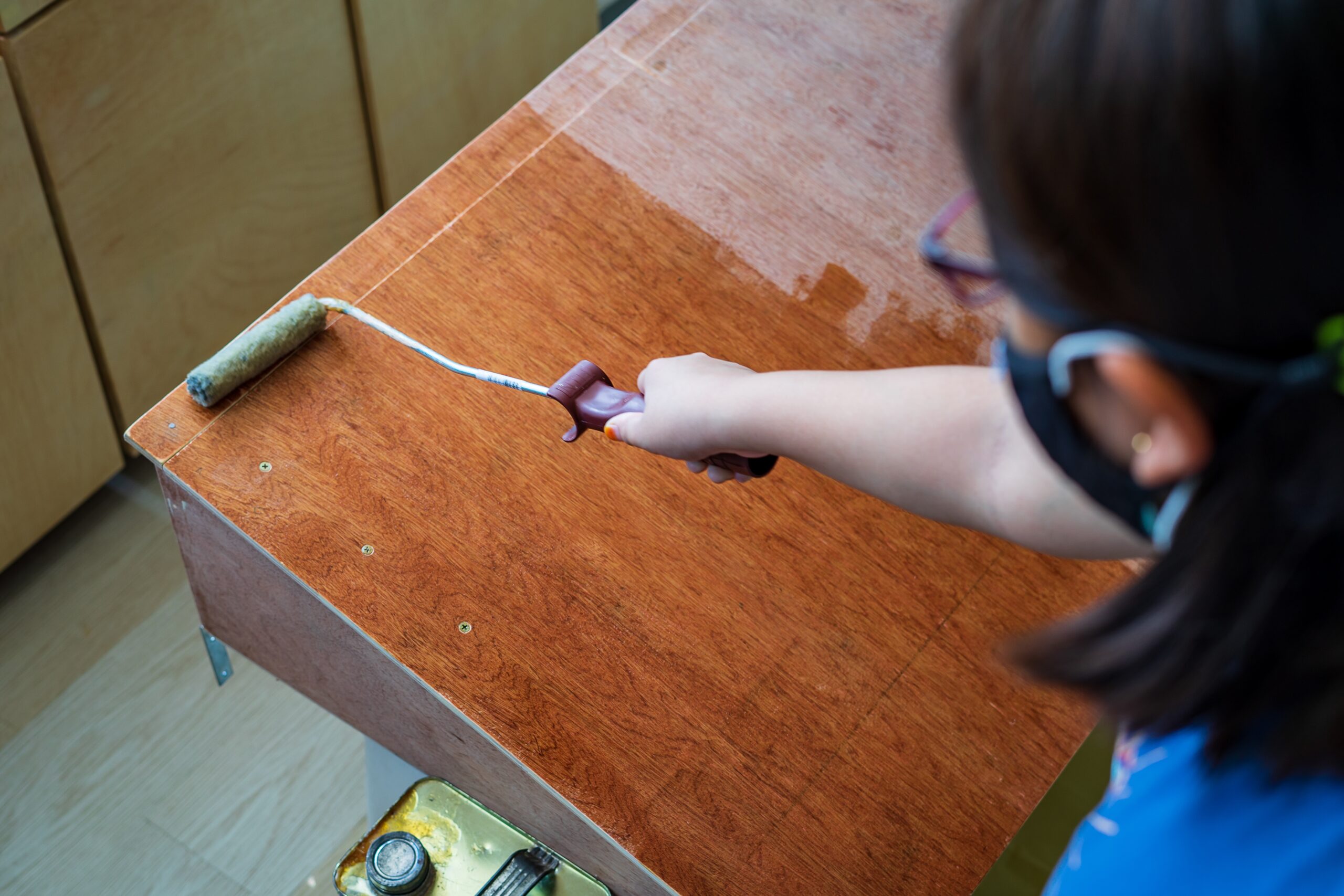Polyurethanes polymers are incredibly versatile, which is why they are used in countless applications around the world. The mechanical properties of polyurethane can be isolated and manipulated through creative chemistry, which will create a number of unique opportunities that will solve issues with performance characteristics unequaled in other materials.
Do you have an idea for a new polymer or a replacement? Through custom polymer synthesis, experts like Hauthaway can help you to specify, develop, and characterize your polymer. Scientists will optimize the synthesis of new products for your research needs from laboratory scale (grams) to pilot scale (kilograms).

What makes dispersions such a good choice?
Before we take a look at the different factors to consider before contracting a custom polyurethane dispersions provider, we are going to assess the reasons why this is a material that is so widely used around the world today.
- Tear resistance – Polyurethanes have high tear resistance, as well as high tensile properties.
- Impact and abrasion resistance – For applications where severe wear proves difficult, polyurethanes can be an ideal solution, even when temperatures are low.
- Flexibility – Polyurethanes offer excellent performance in applications with high flex fatigue. You can isolate the flexural properties, which enables an effective elongation and recovery process.
- High load-bearing capability – Another benefit associated with polyurethane dispersions is that polyurethane has a high load capacity in both compression and tension. Under a heavy load, polyurethane may change shape, but once the load is removed, it will return to the initial shape with little compression-set left in the material. Of course, this is so long as the polyurethane has been designed correctly for the application in question.
- A broad range of hardness – The polymer’s molecular structure will determine the classification of hardness for the material. It can be manufactured from 20 SHORE A to 85 SHORE D.
- Short production lead times – When you compare polyurethane to the traditional thermoplastic materials used, the lead times are relatively short, which can save you money in the process.
- Wide range of colors – A whole host of different color pigments can be added to the polyurethane throughout the manufacturing process. You can incorporate ultraviolet shielding into the pigment to create enhanced color stability for exterior applications.
- Resistance to fungus, mildew, and mold – The vast majority of polyurethanes that are polyether-based do not support the growth of mildew, mold, and fungus, and they are consequently very much suited to environments that are tropical in nature. You can also add special additives to lower this in polyester PUD’s.
- Performance in harsh environments – As polyurethane is highly resistant to extremes in temperatures, it can handle harsh environments. There are very few chemicals that will result in the degradation of the material.
- Strong bonding properties – Aside from the benefits that we have mentioned so far, it is also important to consider that polyurethane can bond to a broad assortment of materials. These include wood, metals, and other plastics.
- Wide range of resilience – Resilience generally relates to hardness. Low rebound compounds are to be used for shock-absorbing elastomer applications. These will be compounds that have a resilience ranging from around 10 percent to 40 percent. When fast recovery is required or for high-frequency vibrations, resilience between 40 percent and 65 percent is used. Generally speaking, high resilience will enhance toughness.
- Electrical properties – If that was not enough, polyurethanes will typically exhibit excellent electrical insulating characteristics.
- Resistance to grease, oil, and water – Finally, the properties of polyurethane will remain stable in grease, oil, and water, meaning minimal swelling. Polyether compounds could potentially last for many years in subsea applications.
Five things to consider prior to contacting a custom poly dispersions provider
Before you contact an experienced provider of polyurethane dispersions, there are a number of different factors that need to be considered. Read on to discover everything you need to know.
1.) What do you intend to use polyurethane dispersions for?
From graphic art applications to adhesive coatings for automotive parts, there are many different uses for water-based polyurethane dispersions today. It is important to outline your goals and objectives from the very start.
Formulators are able to fine-tune polyurethane structures to suit your specific needs, as this is a coating that comes with a broad assortment of achievable performance characteristics.
From adding a lustrous finish to your coating to enhancing the flexibility, toughness, and chemical resistance of your formulation, there are so many things that can be achieved with a custom synthesis service. This is why it is important to have a clear understanding of your goals and objectives before enlisting the assistance of professionals.
The best companies will have a whole host of different formulating approaches at their disposal to enable you to achieve your goals and objectives. For example, if you want to produce an adhesive coating that has a flat gloss, satin, or semi-gloss finish, silicas like Evonik’s TS-100 and non-silica powders such as Bermasilk MK (Bergen Materials) or Pergopak M3 (Albemarle Corp.) may be considered.
You can read our formulating guidelines to get a better understanding of the various options that are available. This is not an exhaustive guide, but it can help you to get an understanding of some of the processing options and raw materials that can be used to create your intended outcome.
2.) The grade of polyurethane dispersion you require
Another factor that you need to consider is the grade of polyurethane dispersion that is going to be right for your application. Of course, this is something that you will be able to discuss with the expert company that you hire.
To give you a better understanding, though, let’s take a look at some of the different grades that you can select from:
- Aromatic grades – These grades are very economical. They are based on unsaturated isocyanates. When exposed to UV light, they will yellow, and so it is a bit of a balance in terms of cost and quality.
- Laminating adhesive grades – These grades are designed for laminating film to foil composites, film to film, and film to paper.
- Co-solvent free grades – The formulator can expect a very low VOC content base resin. Some of the grades in this category need co-solvent to be added so that optimal film formation can be achieved at ambient temperatures.
- Polyester-based grades (NMP-containing) – Such grades contain n-methyl pyrrolidone co-solvent. Generally, grades based on polyester will provide improved stain- and chemical-resistance properties over polyether-based products.
- Flame retardant grades – Polymer chains feature unleachable, halogen components to lower flame spread on textiles that have been coated. Coatings based on these products offer true mass-tone color capability.
- NMP-free (DMM-Based) / APEO-free grades – An alternative to the conventional NMP-based products, these grades provide the option of formulating coatings that are eco-friendly.
- OH-functional grades – Such grades have been designed for use in two-part coatings systems with water-dispersible isocyanate crosslinkers.
- Polycarbonate-based coatings (NMP-containing) – When compared with polyether and polyester-based grades, polycarbonate-based grades deliver superior hydrolytic stability during standard hydrolysis testing.
3.) The sort of testing the provider will conduct to determine the right solution
There are many reasons why you may be interested in custom polymers. In some cases, engineering experts look for an expert in polymer materials because they need to determine the best material for their project.
In other cases, they want to upgrade one of their current products because the adhesive coatings at present are not performing to the level that is required.
No matter what the situation may be, if you are unsure if your select material is satisfactory or what sort of material you are going to need for the project, your supplier should be willing to carry out tests on different materials and components to determine what coating is going to be effective in helping you to achieve your goals.
Perhaps you are interested in water-repellent properties and heat resistance? From aesthetic costs to vibration control and noise damping, there are many different characteristics that may be important to you.
The expert you work with must make a dedicated effort to understand the particular needs of your project, and they should be specific about the sort of tests the materials will need to undergo to determine this.
4.) The company’s reputation for custom polymer synthesis
Of course, there are plenty of companies out there claiming to provide the best custom synthesis service for your adhesive coatings, but you need to conduct due diligence and make sure that this is actually the case.
Thankfully, the Internet makes it easier than it ever has been to find out everything we need to know about service providers before we use their services. Spend some time comparing companies and researching them to make sure that they have a great reputation in the industry.
Read reviews that have been left by past customers so that you can see what they have had to say about the company in question. Were they happy with the service they received? Has their solution been effective and long-lasting? What was the company like to work with? This is the only way you’re going to get the answers to the questions you really want to know.
Make sure you use independent review platforms so you can be sure that the comments are 100 percent genuine. After all, if a company posts reviews to their own website, they’re not going to be inclined to publish all of the bad comments, are they?
Aside from this, you can browse the company’s website to take a look at some of the different work that they have done so far. This is a great way of understanding the company’s capabilities and whether or not they provide the sort of custom service that you really need. After all, there are many uses for polyurethane dispersions, and so you will want a company that has experience in the sort of product you require.
Another important element to consider when it comes to the company’s reputation is whether or not they adhere to the standards and regulations that are in place. At Hauthaway, we are ISO 9001:2015 certified, so you can have complete peace of mind.
5.) Order time and cost
Last but not least, before you get in touch with the company, it makes sense to find out a little bit more about the order times and costs associated with their service.
Of course, with any custom service, you would not expect there to be a fixed price. However, you will want to make sure that the company has a reputation for value for money. Don’t simply look for the cheapest service you can find, as you are almost certain to suffer from a lack of quality as a consequence.
Aside from this, the order time is imperative. At Hauthaway, we make a dedicated effort to keep order times as low as possible without impacting quality. Our custom orders can be manufactured in as little as 10 days, with stocking programs available to further lower the turnaround time.
Final words on working with a custom synthesis formulator
As you can see, there is a lot that needs to be considered when working with a custom synthesis formulator. We hope that the guidance that we have provided above has helped you to get a better understanding.
If you would like to discuss your unique requirements, please do not hesitate to get in touch with our experienced team and we will be more than happy to assist you in any manner we can. Click here to schedule a consultation with our team today.



